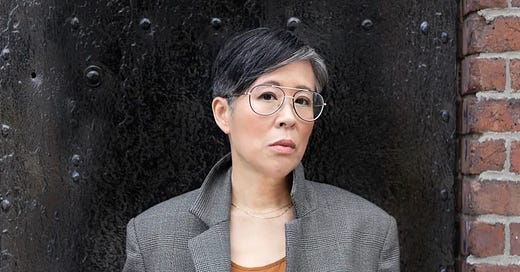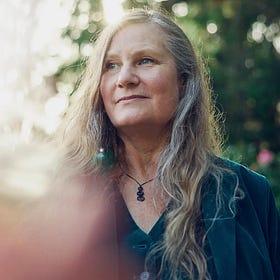Lisa Ko Destroys A Lifetime of Journals
"If I didn’t write it down, did it even happen? Would I remember it? What would that mean for me?"
Friends!
It is June, the beginning of popsicle season, and we are back with a cycle of four new interviews. In the coming weeks, you’ll be hearing about survival stories, the pleasure of tiny details, being a child of immigrants, walking through unknown cities, and the parallels between prose and architecture. Subscribe to the podcast to follow along:
This week, we dropped a conversation with the novelist Lisa Ko, author of a critically acclaimed first novel, The Leavers, as well as a new novel about art-making, tech dystopias, community organizing, and New York in the 90s: Memory Piece. Lisa surprised me by revealing that the eponymous plot point in Memory Piece was taken from her own life: a character who’s a conceptual artist burns years and years of meticulous daily diaries. In the years Lisa was writing the novel, going through something like an artistic existential crisis, she destroyed more than twenty years of her own daily diaries.
“I was five years old when I started writing things down,” Lisa says. Starting in her twenties, she wrote in her journal every day, keeping track of what she did.
So I had twenty-something years of that logging. There was this anxiety about losing the past. Wanting to maintain a connection to it. And this idea that if I didn’t write it down, did it even happen? Would I remember it? What would that mean for me?
And then, slowly and then all at once, she shredded them.
This interview is sort of about those destroyed diaries, but it’s mostly about finding a sustainable relationship to art-making— trying to figure out one’s relationship to what you leave behind when you go, whether novels can ever change your life or the world around you in the ways you want them to. It’s full of good-humored, thoughtful ideas about art and production, “overnight success,” and letting go of parts of your identity that don’t fit anymore.
It was helpful for me to reorient writing and novel-making as a durational performance piece in its own right. It’s very inefficient in this way. It takes like five, seven, eight years, but it’s also this way for me to make sense of who I am. I think to untangle the idea of novel writing and art making as something that has to be productive and efficient —and to result in a certain kind of product— allowed me to return to my desire to write fiction after a period of thinking, “What’s the point?”
It’s a great one. You can listen to the whole thing here.
In other news:
Thresholds alum Melissa Febos has a new book out! It’s called The Dry Season and it’s about celibacy and desire, nuns, and power. New Yorkers can see Melissa in person talking with Leslie Jamison (also a Thresholds alum) this coming Monday, June 9, at Public Records.
I’ll be participating in the 92Y’s marathon reading of Mrs. Dalloway on June 14 alongside a bunch of fellow writers, including Thresholds alums Leanne Shapton and Sam Lipsyte. More info here.
Our friends at are accepting applications for their Regenerative Residency at The Glynwood Center for Regional Food and Farming. Writers, apply here! TOC also has a few tickets left for their Redwall Dinner at Glynwood, which is going to be a really special night.
That’s all for now! If you like what we’re up to here, please share the newsletter and the podcast far and wide — it really does help.
Til next week—
Jordan
Thanks to our friends at the Black Mountain Institute and LiteraryHub for making Thresholds possible.









I love this podcast and I thoroughly enjoyed this interview. I read "Memory Piece" because of a recommendation from a friend. Thank you for the work you do with this podcast!